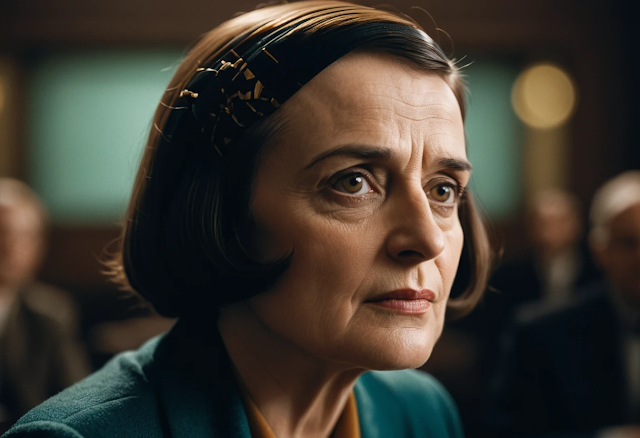The Philosophy of Ayn Rand: A Comprehensive Exploration
This document delves into the profound philosophy of Ayn Rand, a prominent figure in 20th-century literature and philosophy. Known for her development of Objectivism, Rand's ideas have sparked extensive debate and admiration. This article is structured into five sections, each exploring different facets of her philosophy, accompanied by ten insightful quotes that encapsulate her thoughts and beliefs.
The Essence of Objectivism
Objectivism is the philosophical system developed by Ayn Rand, emphasizing reason, individualism, and capitalism. At its core, Objectivism advocates for the pursuit of one's own happiness as the moral purpose of life. Rand argues that reality exists independent of consciousness, and that individuals must use reason to understand the world around them.
- "The question isn't whether we will be extremists, but what kind of extremists we will be."
- "The man who does not value himself, cannot value anything or anyone."
- "To be free, a man must be free of his brothers."
- "A is A."
- "The purpose of morality is to teach you, not to suffer and die, but to enjoy yourself and live."
- "We can ignore reality, but we cannot ignore the consequences of ignoring reality."
- "The most depraved type of human being... is the man without a purpose."
- "You can’t fight the world with a smile."
- "The evil of the world is made possible by nothing but the sanction you give it."
- "The truth is not for all men, but only for those who seek it."
Individualism vs. Collectivism
Rand's philosophy strongly contrasts individualism with collectivism. She champions the rights of the individual and argues that the collective should never supersede individual rights. Her works often depict the struggle of the individual against societal pressures and the importance of personal integrity.
- "Individual rights are the means of subordinating society to moral law."
- "The greatest guilt is to be born a man."
- "Collectivism holds that man is a sacrificial animal."
- "The individual is the smallest minority on earth."
- "The man who does not think for himself does not think at all."
- "There is no such thing as a collective right."
- "The only way to deal with the world is to be an individual."
- "A society that robs an individual of the product of his effort is a society that robs him of his moral right to exist."
- "The man who produces while others dispose of his product is a slave."
- "The question is not whether we will be extremists, but what kind of extremists we will be."
The Role of Reason
Rand places a significant emphasis on reason as the primary means of human knowledge and the foundation of her philosophy. She argues that reason is man's only means of survival and that it is essential for achieving personal happiness and success.
- "Reason is not a matter of choice, it is a matter of necessity."
- "The mind is the only thing that can create."
- "Man's mind is his basic tool of survival."
- "The most important thing to remember is that you are not a victim."
- "Reason is the only means of knowledge."
- "The act of thinking is the act of creation."
- "A rational man is a man who acts in accordance with his own judgment."
- "The man who thinks is a man who acts."
- "To think is to be alive."
- "The mind is the only thing that can create."
Capitalism and the Free Market
Rand is a staunch advocate for capitalism, viewing it as the only moral social system. She argues that free markets allow individuals to trade value for value, fostering innovation and prosperity. Rand believes that capitalism is essential for human flourishing and the protection of individual rights.
- "Capitalism is the only system that recognizes individual rights."
- "The government is not a solution to our problems; government is the problem."
- "The man who produces while others dispose of his product is a slave."
- "The only moral social system is one that protects individual rights."
- "The free market is the only system that allows for human progress."
- "The government should be a referee, not a player."
- "The businessman is the man who produces."
- "The only way to achieve prosperity is through capitalism."
- "A free market is a moral market."
- "The pursuit of happiness is the highest moral purpose of life."
Art and Aesthetics
Rand also explored the role of art in human life, asserting that art is a reflection of human values and a means of communicating ideas. She believed that art should celebrate human achievement and the potential for greatness, serving as a source of inspiration.
- "Art is a selective recreation of reality according to an artist's metaphysical value judgments."
- "The purpose of art is to concretize the artist's values."
- "Art is a reflection of the artist's view of the world."
- "The artist's role is to create a vision of the ideal."
- "Art is the most potent form of communication."
- "A work of art is a projection of the artist's values."
- "The artist must be true to his vision."
- "Art is a celebration of human potential."
- "The greatest art is that which inspires."
- "Art is the bridge between the ideal and the real."
Ayn Rand's philosophy of Objectivism continues to resonate with many individuals seeking a framework for understanding the world and their place within it. Her unwavering commitment to reason, individualism, and capitalism offers a compelling perspective on human potential and achievement. Through her writings, Rand challenges us to embrace our own values, think critically, and pursue our happiness unapologetically. Her legacy remains a powerful reminder of the importance of individual rights and the role of reason in our lives.










